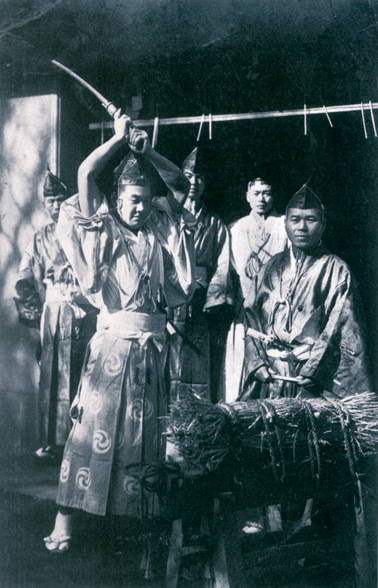|
Reviews of Recent Independent, Foreign, & Documentary Films in Theaters and DVD/Home Video
YASUKUNI Yasukuni, which means peaceful country, is a controversial Shinto shrine honoring Japan’s 2.5 million “heroic spirits,” who died in her wars since the late 1800s, including several men convicted of war crimes in World War II. Their souls are believed to be all fused within a single holy sword housed in a secret location at the shrine. Visits by a succession of Japanese prime ministers to Yasukuni have infuriated Chinese and Korean governments, who believe Japan has not fully owned up to the atrocities it committed during WW II. The shrine, the ceremonies commemorating the 60th anniversary of the end of the war, and by extension Japan’s wobbly relationship with its history and neighbors, are the subject of Chinese filmmaker Li Ying’s fascinating documentary. Made over a period of 10 years by Li Ying, a 19-year resident of Japan, Yasukuni was mostly shot by Li on a digital camera he snuck onto the grounds of the shrine. He manages to create some interesting compositions—favoring almost disorienting close-up shots—despite having to film in secret and under real physical danger. (At one point, two anti-Yasukuni activists are shown getting beaten bloody by furious right-wing nationalists when they attempt to interrupt the 60th anniversary ceremonies at the shrine. Since the movie was released in Japan, Li has received death threats, and some theaters have refused to screen his film.) This candid-camera approach to filmmaking has its upsides: Li captures some funny and troubling moments, such as when a clueless American waving the Stars and Stripes thinks he is demonstrating his support for the shrine. Gradually, he’s surrounded by a crowd of angry Japanese, who tell him the flag he’s holding angers the spirits at the shrine, and he’s forced off its grounds by the police. But the film, which runs over two hours, meanders, and the grainy, low-resolution picture quality and banality of many of the images make it sometimes seem like a home movie. Yasukuni is at its best when Li interviews the man who emerges as the film’s star, Naoji Kariya, a 90-year-old swordsmith and the last living forger of the notorious Yasukuni swords, which were made at the shrine during World War II and sent to officers fighting at the front. These were often used to commit atrocities, such as the beheading of prisoners of war (graphic images of which are shown near the end in a provocative, gripping 15-minute reel of archival footage). Kariya creates a sword for us on camera, and it’s hard not to be humbled watching this man—spry and looking to be only in his early 70s—use his huge, gnarled hands to forge a sword using traditional blacksmithing techniques. Although cheerfully able to explain how he makes the sword—to test it, it slices through wet straw and bamboo, to mimic the human torso and spine—he goes silent and seems genuinely pained whenever Li tries to goad him into reminiscing about WW II, as though a self-protective fog of amnesia conveniently conceals this part of his past. That said, there are
many nits here for a Japanese nationalist to pick. An infamous contest
by two young Japanese officers to see who could be the first to behead
100 Chinese is presented as real, when the mainstream historical
consensus is that it was a hoax made up by Japanese journalists during
the war to boost morale. And one surreal controversy involves a
petition—submitted by a courageous Taiwanese woman whose father was
pressed into war by the Japanese—to free the souls of non-Japanese
believed to be among the 2.5 million trapped in the shrine’s
Yasukuni sword. The Yasukuni caretakers and priests say the souls can’t
be removed, as they’ve already merged with the other souls in the sword;
the relatives want them taken out so they can be returned to their home
countries where they belong. Without narration, I was—well, just
confused. Brendon Nafziger
|


